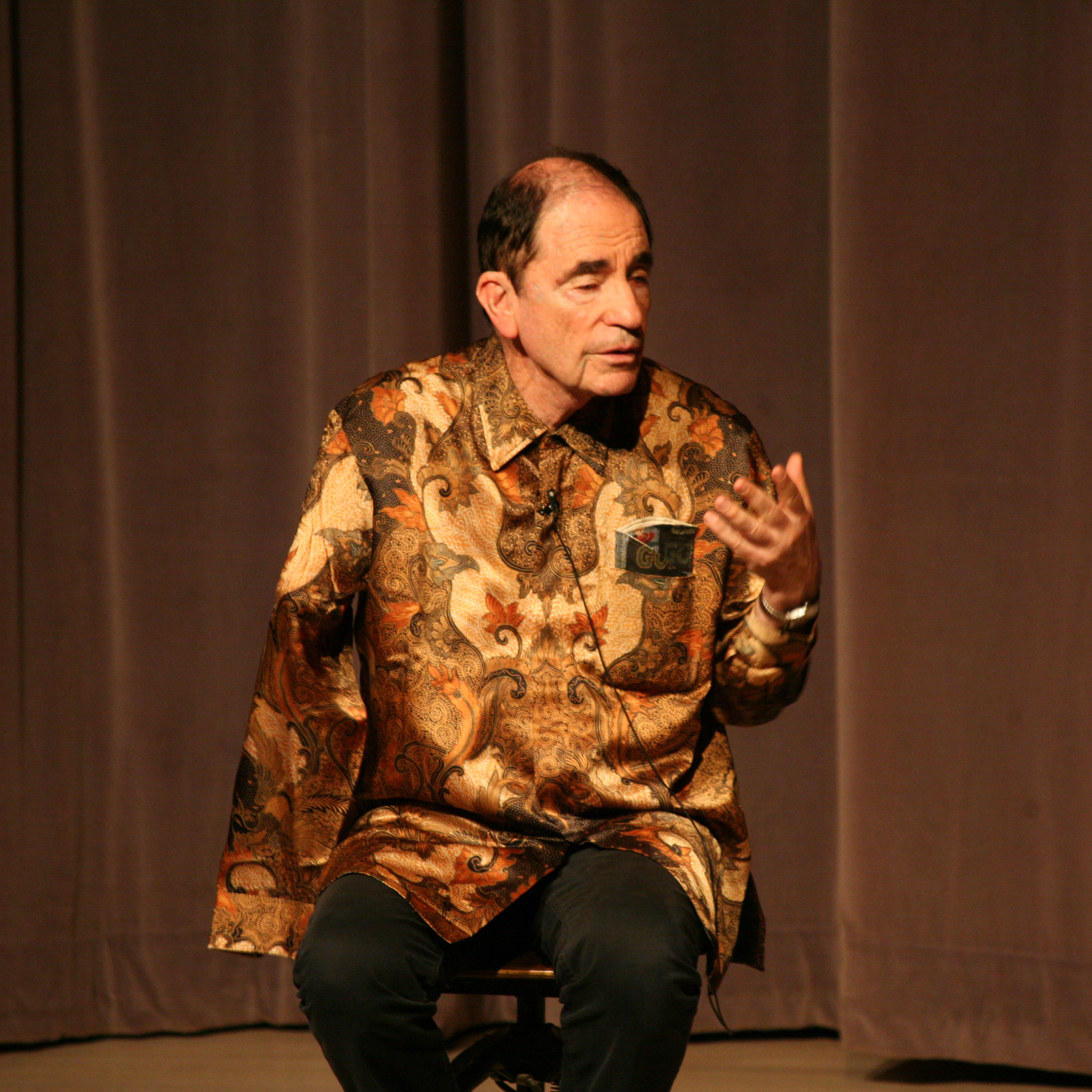Symposium Speakers
Part I: The African American Experience
Peggy Cooper Davis
John S. R. Shad Professor of Lawyering & Ethics, New York University Law School
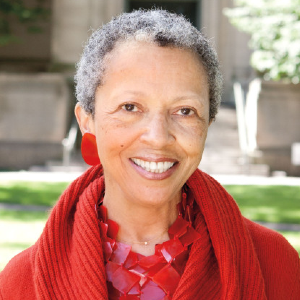
Peggy Cooper Davis, a leading commentator in the field of cross-racial interactions within the justice system, is Professor of Law at New York University School of Law. In her influential article Beyond the Confederate Narrative, she and her co-authors demonstrate through careful exegesis of critical lines of Supreme Court opinions how the Confederate narrative has subverted post-bellum ideals of human dignity and equal respect for all people. Her forthcoming book, Enacting Freedom, illuminates the importance of anti-slavery and civil rights traditions as guides to the scope and meaning of Fourteenth Amendment liberty interests.
In the news:
- ‘The Most Important Woman Lawyer in the History of the Republic’, POLITICO, September 18, 2020
Dr. Rex M. Ellis
Associate Director for Curatorial Affairs (Emeritus), National Museum of African-American History & Culture
Chair, 400 Years of African-American History Commission
Trustee, Fort Monroe Authority
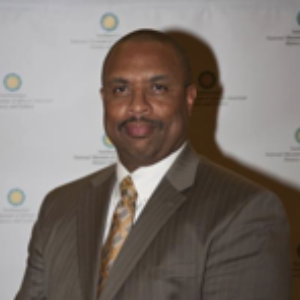
Dr. Rex M. Ellis was the founding Associate Director for Curatorial Affairs at the National Museum of African American History and Culture at the Smithsonian Institution. Prior to this position, Dr. Ellis was Vice President of the Historic Area for the Colonial Williamsburg Foundation, where he oversaw all programs and operations. He was the first African American Vice President in the Foundation’s history and served in that position for eight years. He is the author of two books, Beneath the Blazing Sun: Stories from the African American Journey and With a Banjo on My Knee which chronicles the history of black banjo players from the time of slavery to the present. His presentations, lectures, workshops, and consultancies focus on, public programming, diversity, interpretation, and African American History and Culture. His disciplinary interests include the spoken word, early American History, with special emphasis on slavery.
Congresswoman Barbara Lee
13th Congressional District, California
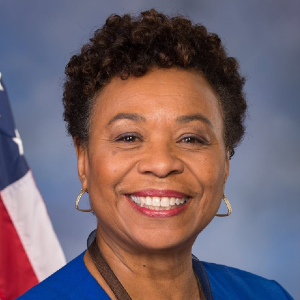
On June 4, 2020, Congresswoman Barbara Lee introduced legislation calling for the establishment of the first United States Commission on Truth, Racial Healing, and Transformation. The Commission will examine the effects of slavery, institutional racism, and discrimination against people of color and ways in which our history impacts laws and policies today. The legislation is supported by a broad coalition of members of Congress and community partners. Congresswoman Lee was born in segregated El Paso, Texas and attended St. Joseph’s Catholic School, where she was taught by the Sisters of Loretto, an order dedicated to promoting justice and peace. Her father was a veteran of two wars and her mother broke a number of glass ceilings and racial barriers. In 1990, Congresswoman Lee was elected to the California State Assembly, where she served until 1996 when she was elected to the State Senate. In 1998, she was elected to serve California’s 9th congressional district (now the 13th district) in a special election, an office she currently holds.
In the news:
- Oakland Rep. Barbara Lee saluted with screening at Jewish film festival, San Francisco Chronicle, July 15, 2020
- Rep. Barbara Lee wants to form a racial healing commission to reckon with 400 years of systemic racism, Berkeleyside, June 9, 2020
Walter Riley
Attorney & Civil Rights Activist
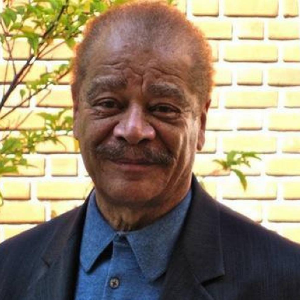
Growing up in the Jim Crow South, Walter Riley became an activist at a young age. He served as President of the Young Adult Chapter of the North Carolina NAACP and organized voter registration campaigns, lunch counter sit-ins, job campaigns, and campaigns to desegregate public accommodations, schools, and businesses. After leaving college in 1968, he helped organize a rank and file Black Caucus among San Francisco Muni bus drivers. He supported labor and antiwar movements and worked with the Black Panthers and other community groups to stop urban removal of Black and other working-class communities. Mr. Riley recently served as lead attorney for the Blackfriday14 and other #BlackLivesMatter protesters.
In the news:
- Judge orders preliminary injunction against Oakland police over crowd control policy, KTVU FOX 2, July 29, 2020
- Civil rights leader joined the movement as a teenager, The Herald-Sun, May 17, 2018
Albie Sachs
South African Activist and Constitutional Court Justice
Albie Sachs’ career in human rights activism started in 1952, when as a 17-year-old second-year law student at the University of Cape Town he took part in the Defiance of Unjust Laws Campaign. Three years later, he attended the Congress of the People, where the Freedom Charter was adopted. He began his practice as an advocate at the Cape Bar when he was 21; most of his work involved defending people charged under apartheid's racist statutes and repressive security laws. Many of the people he defended were facing sentences of death. As a result of his work, he was raided by security police, subjected to banning orders restricting his movement and placed in solitary confinement for 168 days without trial. He eventually went into exile in 1966.
While in exile, Sachs worked closely with Oliver Tambo, the leader of the African National Congress, and helped draft the organization's Code of Conduct and statutes. In 1988, while in Mozambique, he lost an arm and his sight in one eye when a bomb was placed in his car.
After recovering from the effects of the bomb blast, Sachs devoted himself full-time to preparations for a new democratic Constitution for South Africa. In 1990, he finally returned home. As a member of the Constitutional Committee and the National Executive Committee of the ANC, he played an active role in negotiations leading to South Africa’s transition to a constitutional democracy. After the first democratic election in 1994, President Nelson Mandela appointed him to serve on the newly established Constitutional Court of South Africa.
In addition to his legal work, Albie Sachs now travels to countries around the world in his efforts to help heal divided societies.
In the news:
- From South Africa, Lessons in 'Soft Vengeance', NPR, November 25, 2011
Yasmin Sooka
Member, South African Truth & Reconciliation Commission
Member, Sierra Leone Truth & Reconciliation Commission
Chair, UN Commission on Human Rights in South Sudan
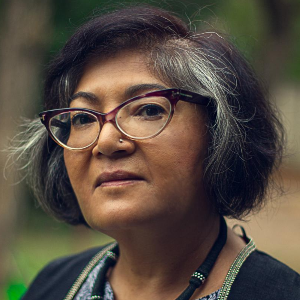
Yasmin Louise Sooka, a leading South African human rights lawyer, served during the apartheid period as a member and later President of the World Conference on Religion and Peace, an interfaith body working for peace and justice in South Africa. In June 2016, Ms. Sooka was appointed by the President of the UN Human Rights Council as Chair of a three-person Commission on Human Rights in South Sudan, a post she currently holds. She also serves as Director of the International Truth and Justice Project in Sri Lanka and a Trustee of the Desmond Tutu Peace Centre.
David Tolbert
Acting Registrar of the Lebanon Tribunal
Former President, International Center for Transitional Justice

From 2010 to 2018, David Tolbert served as President of the International Center for Transitional Justice, a global organization working for justice in countries that endured massive human rights abuses under repression and conflict. He previously served as the United Nations Assistant Secretary General and Registrar at the Special Tribunal for Lebanon and United Nations Assistant Secretary General and Special Expert to the UN Secretary General on the Khmer Rouge Trials. Mr. Tolbert has authored over forty scholarly articles as well as numerous op-eds and other pieces on international criminal justice, transitional justice and rule of law issues.
In the news:
- African Americans and Police: To Repair Broken Trust There Must Be a Reckoning First, The Huffington Post, April 7, 2017
Keith Young
City Council, Asheville, North Carolina
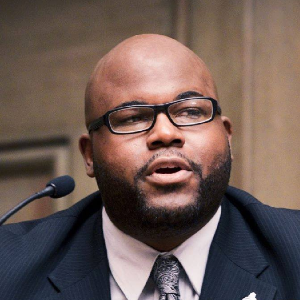
On July 15, 2020, led by Councilmember Keith Young, the City Council of Asheville, North Carolina took an historic step toward repairing centuries of racial prejudice by unanimously voting to apologize to its Black residents for the city’s role in slavery, discriminatory housing practices and other racist policies throughout its history. The resolution, passed unanimously, calls for a plan to provide reparations in the form of investments in the local community, including strategies to increase minority home ownership, business ownership and career opportunities, and opportunities to grow equity and generational wealth. As Councilmember Young states, the Council’s intention is to embed systemic solutions.
Within the past six months, similar measures have been explored and undertaken in other major cities in the United States, including San Francisco, Boston, Philadelphia and Providence.
In the news:
- How The Asheville City Council Approved Reparations For Black Residents, ELLE, July 29, 2020
- In historic move, North Carolina city approves reparations for Black residents, USA Today, July 15, 2020
